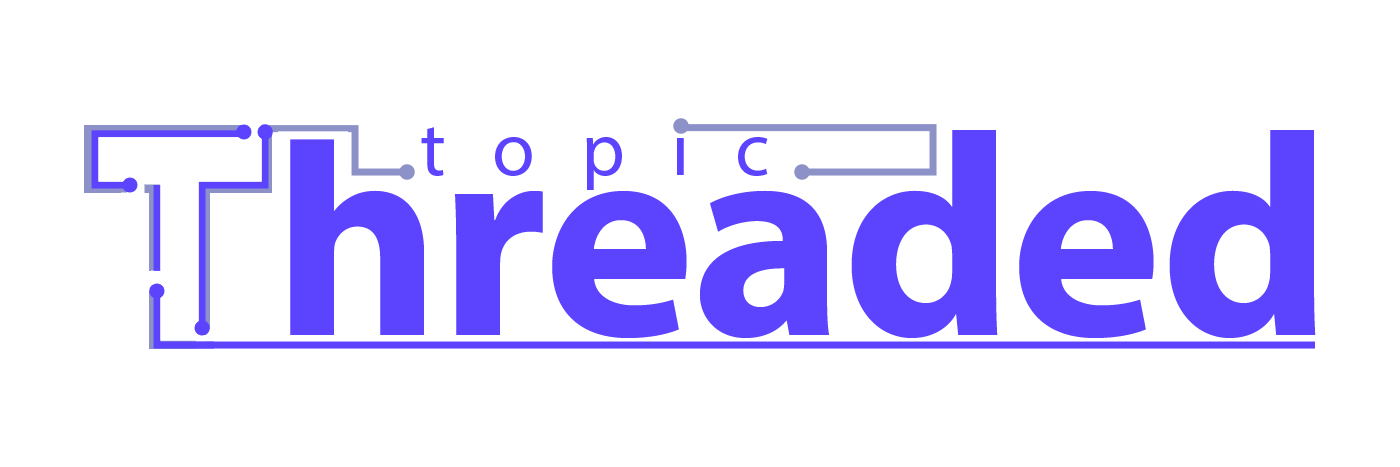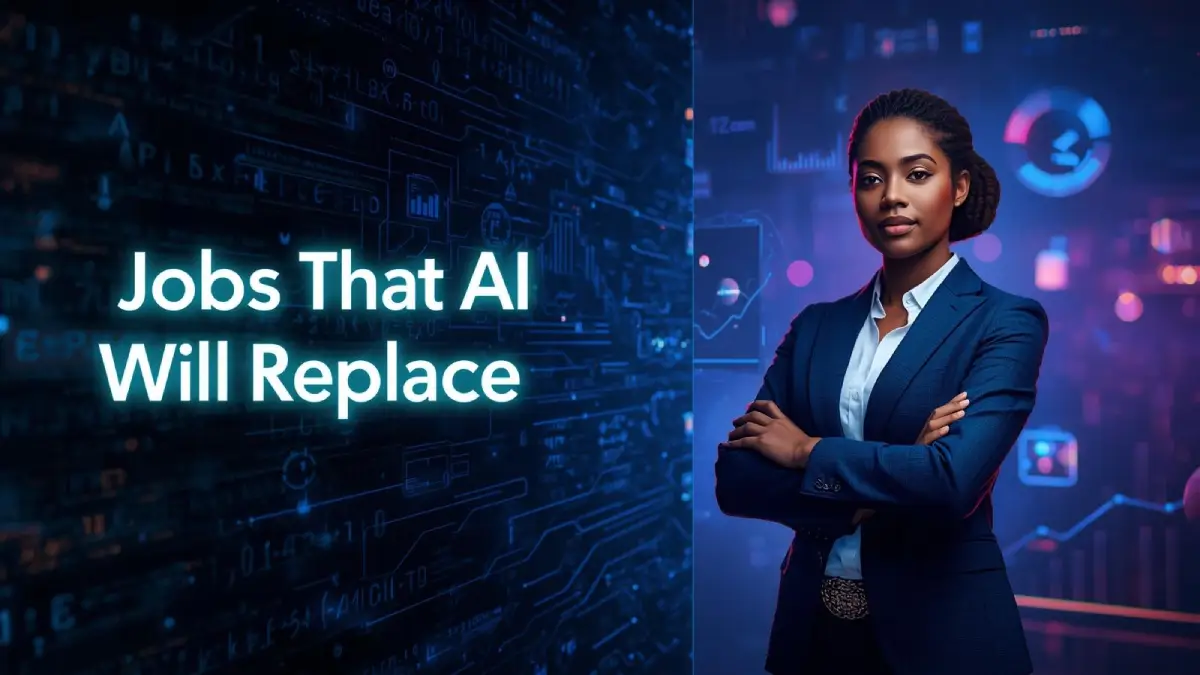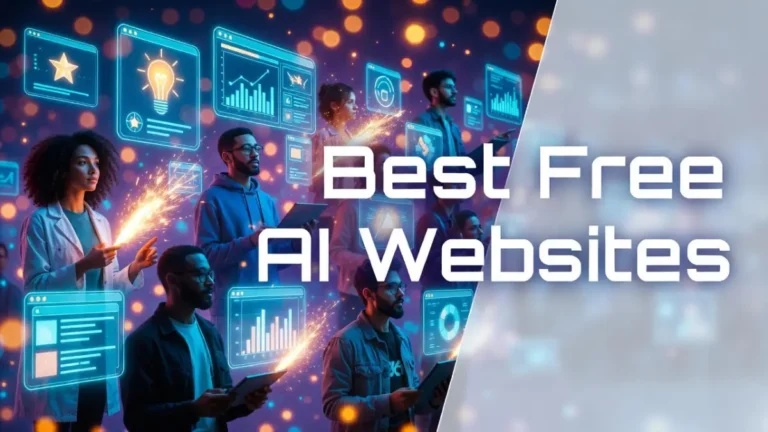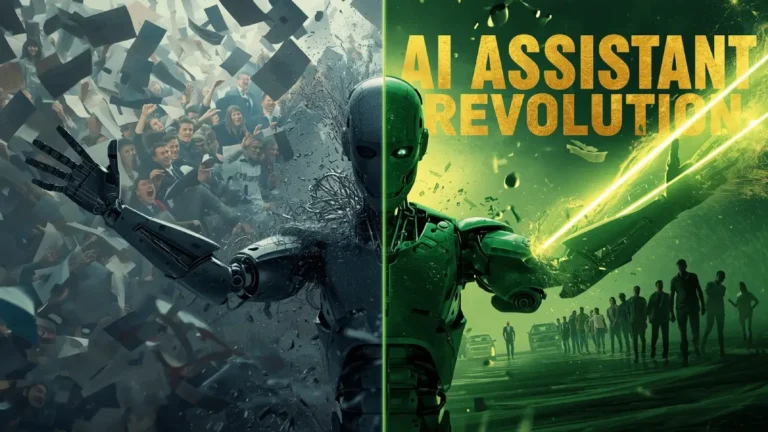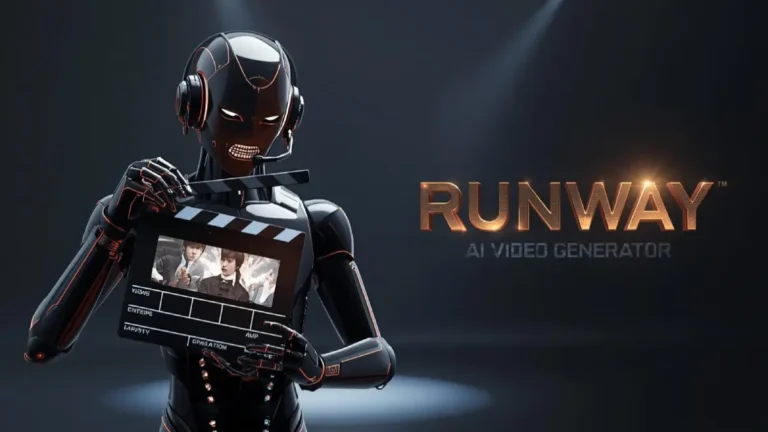The 2026 horizon feels different. Headlines keep hammering the same question: is AI taking over jobs? That tight knot in your stomach makes sense—Challenger, Gray & Christmas tracked nearly 55,000 U.S. layoffs this year alone, pointing straight at automation as the culprit. When we talk about jobs that AI will replace, it’s easy to focus only on what’s disappearing. But this shift isn’t pure loss. It’s a massive reorganization of where human value fits best. Yes, the fear of AI taking over jobs is real, yet brand-new roles like AI ethics guardians and system trainers are already popping up. The winners? Those who recalibrate their skills fast—to lead the change, not just ride it out.
Table of Contents
The Automation Avalanche: Why Certain Jobs That AI Will Replace Are Fading Fast
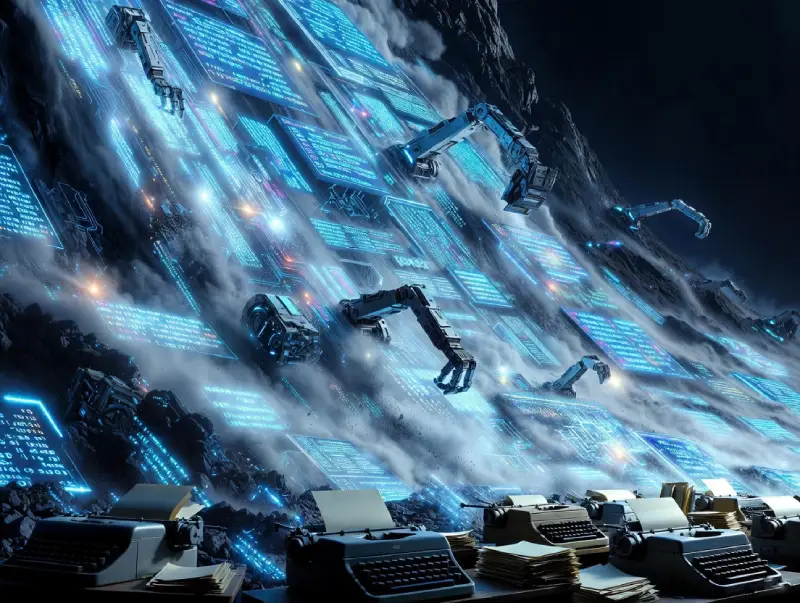
Think about those old-school offices piled high with paper files, or teams stuck maintaining outdated legacy systems that barely keep up. I’ve seen plenty of roles like that become outright obsolete—first with basic tech upgrades, now turbocharged by AI. Jobs still heavy on analog paperwork or clinging to ancient software just don’t cut it anymore in a world demanding speed and accuracy. That’s exactly why certain jobs that AI will replace are disappearing fast: AI replacing jobs through sheer efficiency, and artificial intelligence taking over jobs where repetition rules.
Breaking Down the Tech: How AI Masters Repetitive Tasks
Just look at the numbers this year—Challenger, Gray & Christmas reports show how many jobs has AI replaced, with AI directly cited for nearly 55,000 U.S. layoffs in 2025 alone, hitting repetitive admin, data processing, and support roles hardest. AI taking jobs thrives on clear patterns: scanning invoices, logging routine data, or running standard reports. Machines handle it tirelessly, scale effortlessly, and slash costs dramatically—no coffee breaks required.
Personal Reality Check: Will Robots Take My Job in the Next Year?
You open your work dashboard and pause. Will robots take my job soon? Can a robot take my job entirely? If your days revolve around predictable, rule-based steps—like manual form-filling on old systems or paper-based tracking—yeah, the heat’s on. Those analog holdouts are prime targets. But if your role involves judgment calls, human connection, or fresh ideas? You’ve got breathing room. The shift hurts, no doubt, but it also forces us toward work that’s more meaningful and less mechanical.
Red Alert Roster: 10 Jobs AI Will Replace by 2026 and Their Warning Signs

Automation isn’t confined to factories anymore—it’s storming professional services and even reshaping everyday lifestyle tech, where tools like AI Haircut Generators now handle the visual simulations that once demanded a stylist’s expert eye. Brutal truth: jobs AI will replace are those built on predictable patterns, cheap to replicate at scale. What jobs will AI replace next? The ones bleeding efficiency. Challenger, Gray & Christmas pinned nearly 55,000 U.S. layoffs directly on AI in 2025 alone. No fluff—this roster names ten roles on the chopping block by 2026, with raw warning signs staring you down.
Ground Zero for Automation: Data Entry and Clerical Positions
Data entry clerks pound keys endlessly. Basic bookkeepers juggle spreadsheets. Administrative assistants chase paperwork. Warning signs hit hard: if your day revolves around transcribing forms, reconciling simple ledgers, or scheduling on autopilot, the digital conveyor belt is rolling. What jobs will be replaced by AI first? These exact ones—optical character recognition and robotic process automation already slash error rates while costs crater. Firms quietly pilot full replacements; headcounts shrink without fanfare. One complex truth remains: humans tire, algorithms don’t, and executives notice fast.
Frontline Fallout: Customer Service and Support Roles on the Brink
Telemarketers cold-call from scripts. Customer support chat agents repeat canned responses. Brutal reality: chatbots now resolve 80% of queries cheaper, 24/7. Warning signs scream loud—if your performance metrics track resolution speed on routine complaints, or outbound calls hit diminishing returns, the algorithmic ceiling looms. Jobs that will be replaced by AI here vanish overnight when companies flip the switch. Layoffs mask as “restructuring,” but the driver is clear: bots don’t unionize, don’t burnout. Empathy? Reserved for escalations only.
Content Creation Crossroads: Basic Writing and Design Tasks Under Threat
Proofreaders hunt typos. Stock photographers churn generic shots. Junior graphic designers tweak templates. Warning signs flash red: if your output feeds on formulas—grammar checks, library images, preset layouts—AI replacing jobs accelerates here. Tools generate polished drafts, royalty-free visuals, and branded assets in seconds. Portfolios swell with AI-assisted work; clients demand lower rates. The gritty shift: creativity isn’t dead, but commoditized basics are. Juniors watch entry-level gigs evaporate as seniors leverage tools to handle volume alone.
Beyond the Basics: Exploring Other Jobs That AI Will Replace Across Sectors
Language translators handle routine texts. Market research analysts crunch survey data. These mid-tier knowledge roles face the axe next. Warning signs mount: if your value stems from pattern-matching across languages or datasets—without deep cultural nuance or strategic foresight—expect displacement. Neural translation hits 95% accuracy on standard content; AI sifts polls faster than teams. Jobs that AI will replace, plus what jobs will be replaced by AI in finance, legal, and consulting support? Exactly these. Goldman Sachs and WEF reports forecast millions shifted globally. The hard pill: adaptation or obsolescence—no middle ground.
Unbreakable Careers: Discovering AI-Proof Jobs in a Changing World
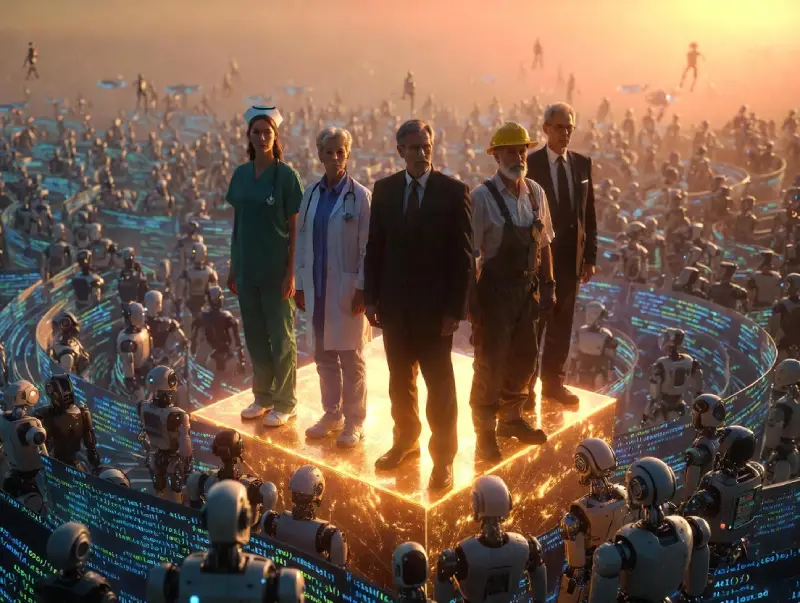
You’ve sat through a raw therapy session with someone close. Tears. Silence. Real connection. No algorithm could ever touch that. Brutal fact: ai proof jobs survive because they demand the messy human core—empathy, instinct, presence. What jobs are safe from ai? The ones machines can’t fake. Microsoft and World Economic Forum data back it up: roles heavy on emotional depth or hands-on skill stay firmly out of reach. These aren’t fading. They’re becoming lifelines in a world increasingly run by code.
The Irreplaceable Human Touch: Empathy-Driven Professions
A nurse holds a frightened patient’s hand. A therapist reads between the lines of silence. Machines crash here. What jobs are safe from ai? Counseling, nursing, social work—professions built on unscripted compassion. AI scans symptoms fine, but it can’t offer comfort that lands in the soul. Physical rehab demands split-second adjustments to pain cues. Elder care needs gentle, intuitive touch. Demand surges as societies age. Human warmth wins.
Leadership and Innovation: Roles Where AI Falls Short
Executives stare down market chaos. They rally teams through fear. Inspire bold moves. Is ai taking over jobs at the top? No chance. AI spits out forecasts, but it can’t smell opportunity in uncertainty or ignite passion in a room. Founders chase wild hunches. Artists bleed originality. WEF predicts these roles will grow—raw human vision still fuels the leaps that algorithms only refine.
Strategic Thinking Havens: Complex Problem-Solving Domains
Surgeons navigate unexpected bleeding. Lawyers wrestle gray-area ethics. Teachers adapt to a classroom full of unique minds. Ai and jobs meet here as partners, never masters. High-stakes ambiguity crushes code-trained models. Tradespeople troubleshoot real-world chaos—plumbers trace hidden leaks, electricians tame erratic circuits. Strategy consultants connect dots across industries in ways data alone misses. These domains reward gut-level judgment. Machines assist. Humans decide.
Resilience Roadmap: Mastering the Era of Jobs That AI Will Replace
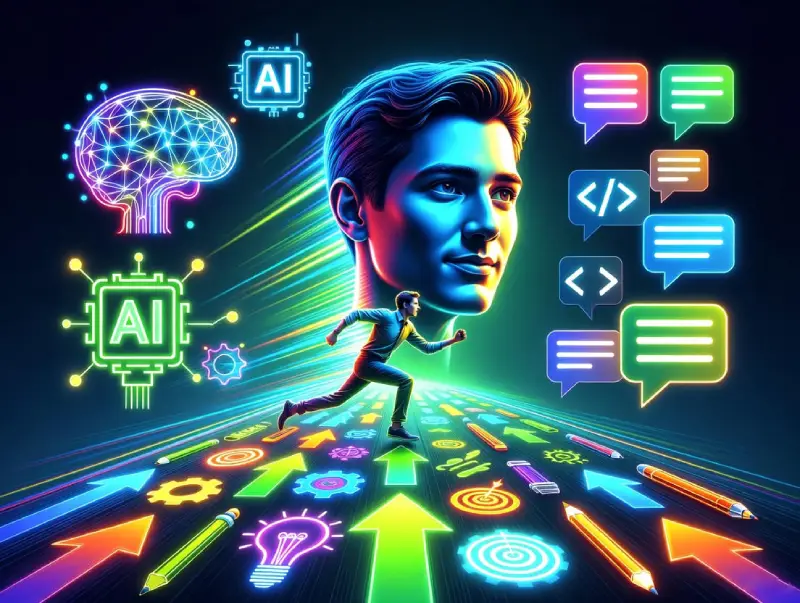
We’ve laid out the tough truth about jobs that AI will replace—no point in panicking now. The real play is to pivot smartly. Even in creative worlds, the heated debate around AI Game Maker vs Traditional Game development proves it: AI tools like Rosebud or Layer crank out assets and prototypes overnight, shifting the grind from manual crafting to high-level orchestration. Ai taking over jobs isn’t the endgame; it’s rewriting the rules. Smart pros treat this disruption as fuel to redirect effort toward what machines can’t touch.
Skill-Building Blueprint: Essential Upgrades for 2026 Readiness
Stuck in a role heavy on repetition? Time to flip the script. If you’re eyeing jobs AI will replace, shift from pure executor—churning outputs—to sharp editor, refining AI drafts with judgment. Meta-skills rule here: critical thinking to spot flaws, adaptability to pivot fast. Become the conductor, not just the violin in the orchestra. Jobs that AI will replace demand this upgrade—master prompt engineering, ethical oversight, lifelong curiosity. Reports show pros with these layers boost value dramatically.
AI as Your Ally: Transforming Threat into Opportunity
Scared of artificial intelligence taking over jobs? Flip it—wield AI to crank output sky-high. Designers feed concepts into generators, then polish uniques; writers draft with tools, hitting double volume. Studies from 2025 reveal users saving hours weekly, leaping productivity 40% in spots. Staying ahead of jobs that AI will replace means partnering up: let machines handle drudge, you steer strategy and nuance. Pros doubling efficiency aren’t waiting for displacement—they’re outrunning it, turning potential threat into serious edge.
Actionable Adaptation: Steps to Safeguard Against Jobs That AI Will Replace
Gritty reality: jobs that AI will replace won’t wait. Three no-nonsense moves to armor up. First, hammer soft skills—empathy, complex negotiation—where ai taking jobs stalls cold. Second, master the tools: dive into AI platforms daily, experiment ruthlessly. Third, forge your brand—network fiercely, showcase hybrid wins on LinkedIn. No fluff; these steps build resilience. Skip them, risk sliding into obsolescence. Embrace, and you lead the pack.
Conclusion
Middle of the night. Phone glows. Another headline about AI layoffs. Heart pounds. We’ve all been there. The dread hits hard. But listen—we’ve dissected the raw facts: jobs that AI will replace are real, from endless data crunching to scripted customer chats. Still, that same storm carves new channels. Think AI overseers acting as the safety net for complex decisions, or hybrid creators turning tools into amplifiers. Panic wastes energy. Pivot channels it. Hone your edge—empathy, judgment, vision. Grab the wheel. Your career morphs, not dies. You’re driving.
